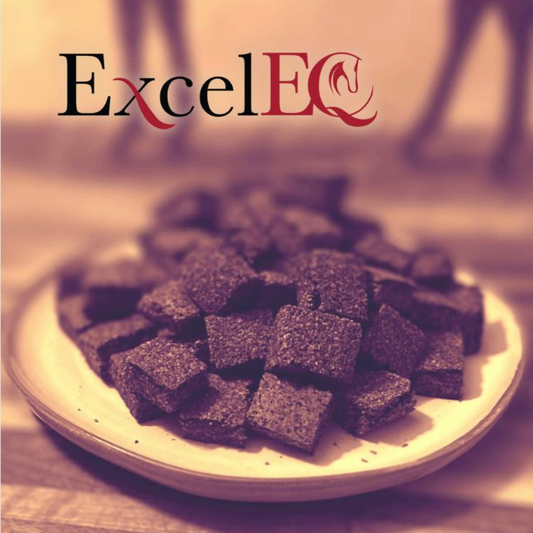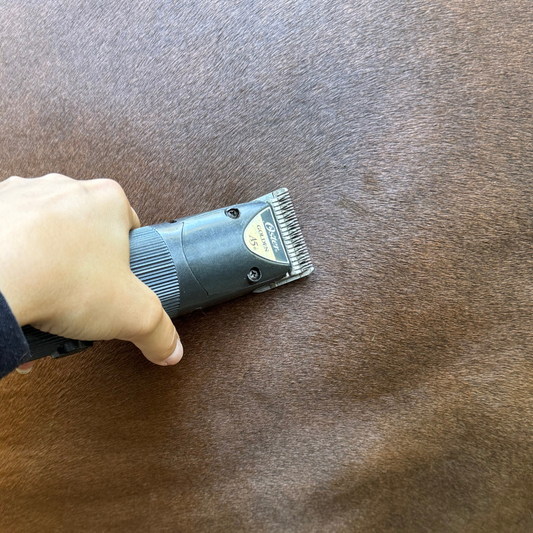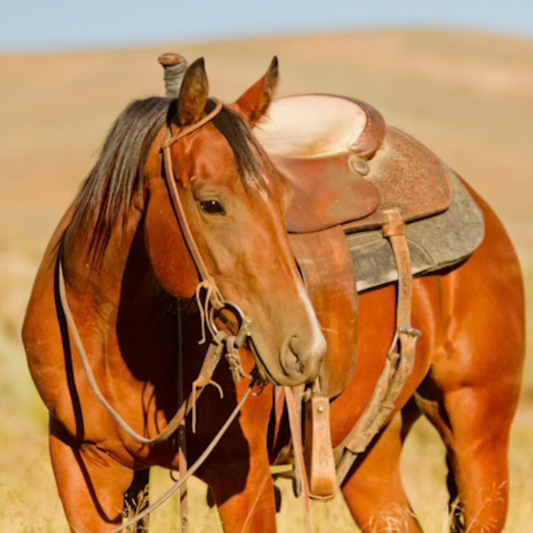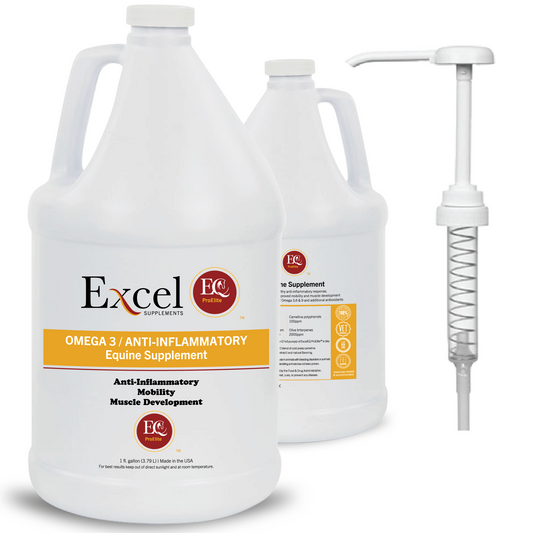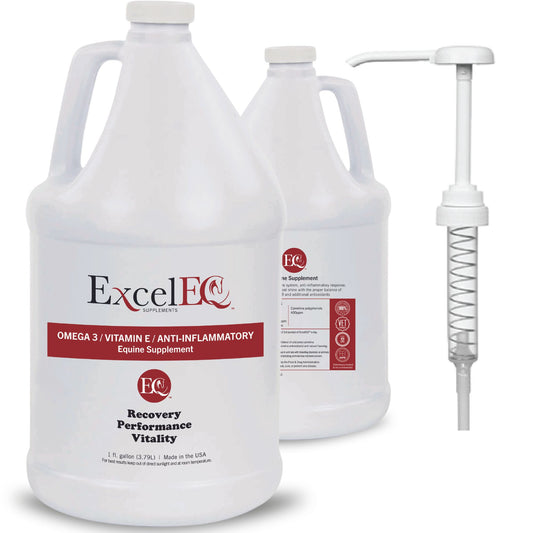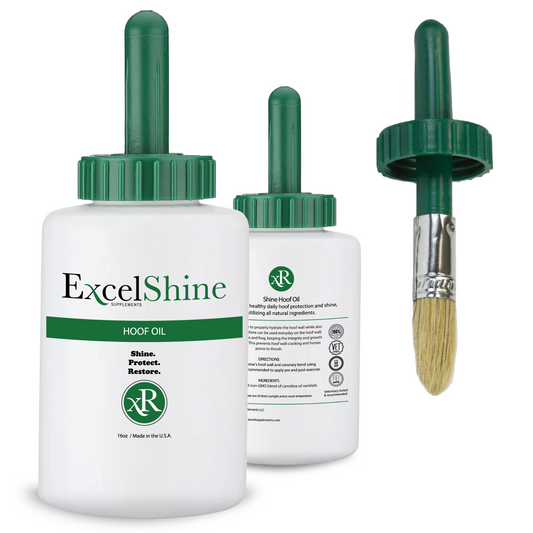Omega 3 to Omega 6 Ratio for Horses: Health & Performance
Share
Understanding the optimal Omega 3 to Omega 6 ratio is crucial for your horse’s health and performance. Recent research underscores how prevalent Omega 6 is in many horse feeds, except for fresh grass. This guide delves into the significance of Omega 3 and Omega 6 fatty acids and offers practical advice on adjusting your horse's diet to maintain a healthy balance.
Why Omega 3 and Omega 6 Ratios Matter for Horses
The Benefits of Omega 3
Omega 3 fatty acids are renowned for their anti-inflammatory properties, which are vital for reducing inflammation and supporting overall health. In their natural habitat, horses receive ample Omega 3 from grazing on fresh grass. However, modern management practices often restrict their access to pasture, resulting in a lower Omega 3 intake.
The Impact of Omega 6
While Omega 6 fatty acids are necessary in limited amounts, an excess can lead to inflammation. Many commercial grains and feeds are high in Omega 6, contributing to an imbalance in your horse’s diet.
Balancing Omega 3 and Omega 6 in Your Horse’s Diet
Common Feeds and Their Omega Ratios
Traditional horse feeds such as oats and corn tend to be high in Omega 6. Oats, although popular, don’t offer a balanced Omega 3 to Omega 6 ratio. Similarly, corn and corn oil, commonly used to enhance weight and coat shine, contribute to excessive Omega 6 intake.
Enhancing Your Horse’s Diet with Omega 3 Supplements
To address the imbalance of Omega 6, incorporating Omega 3 supplements into your horse’s diet is highly beneficial. Excel Supplements offers Camelina Oil products like ExcelEQ and ExcelEQ ProElite, which are specifically designed to improve the Omega 3 to Omega 6 ratio. These supplements provide a high concentration of Omega 3 fatty acids, which helps counteract the effects of excess Omega 6 and supports overall health.
Recommended Feeds and Supplements for Optimal Omega Balance
Top Feeds to Consider
Here are some recommended feeds and their Omega 3 to Omega 6 ratios:
- Nutrena Empower: Excellent for performance horses, with Omega-3 at 2.7% and Omega-6 at 7.7%.
- SafeChoice Senior Horse Feed: Ideal for senior horses, featuring Omega-3 at 0.45% and Omega-6 at 2.50%.
- ProForce XTN: High-calorie feed for extreme athletes, containing Omega-3 at 0.8% and Omega-6 at 5.0%.
- Triple Crown Feeds: Offers various options with different Omega 3 to Omega 6 ratios.
Recommended Omega 3 Supplements
- ExcelEQ: This Camelina Oil supplement provides a potent source of Omega 3, enhancing your horse’s diet and balancing Omega 6 intake.
- ExcelEQ ProElite: An advanced version of Camelina Oil with a higher concentration of Omega 3, designed for horses requiring additional support for inflammation and overall health.
Conclusion
Maintaining the correct Omega 3 to Omega 6 balance is essential for your horse’s health and performance. While many feeds are high in Omega 6, supplementing with ExcelEQ and ExcelEQ ProElite can help achieve a better balance. As you adjust your horse's diet, monitor their condition and consult with your veterinarian for optimal results.
For updated information on equine care, trending topics and discount opportunities follow us on social!
Follow us on Instagram: @excelsupplements
Keep up to date with us on Facebook: Excel Supplements

